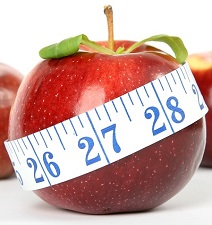What Makes for a Healthy Thyroid Diet
![]()
 Thyroid problems are incredibly common in the western world. The thyroid is important for overall health because it is responsible for producing some hormones. Sadly, there are no specific foods that are known to be beneficial when it comes to treating thyroid problems. If you want to remain as healthy as possible, then the standard balanced diet is a good starting point; choose nutritionally dense foods that are high in calcium and look for foods that contain vitamin D as well.
Thyroid problems are incredibly common in the western world. The thyroid is important for overall health because it is responsible for producing some hormones. Sadly, there are no specific foods that are known to be beneficial when it comes to treating thyroid problems. If you want to remain as healthy as possible, then the standard balanced diet is a good starting point; choose nutritionally dense foods that are high in calcium and look for foods that contain vitamin D as well.
Supplements can help with overall health, but it is important that you do not take too many of them. Fat-soluble supplements, in particular, are easy to overdose on, and the impact can be quite damaging. Consider eating calcium-rich foods and supplements, but be aware that they can interfere with the body’s ability to absorb levothyroxine. Leave a gap of four hours between the ingesting calcium-rich food or drinks and taking levothyroxine. If you are concerned about the calorie density of things such as milk and cheese, then look for lower fat versions. Semi-skimmed and skimmed milk, for example, are both high in calcium despite having a relatively low-fat content.
Avoid Soya
Another food that you should be wary of is soya. Soya can cause issues with the absorption of thyroxine. In general, it is best for people who are taking thyroxine to avoid soya. If, for some reason, you wish to keep eating soya then leave it for as long as possible between eating soya and taking your thyroxine dose.
Avoid Iodine
Iodine is something that a lot of people think of as a ‘thyroid food,’ but it is of questionable benefit. Foods that are high in iodine (some types of soya milk, for example, as well as kelp) should avoid iodine. The thyroid gland does need iodine to function properly, but excessive iodine can cause hyperthyroidism in some people, and can also make hypothyroidism worse in those who suffer from it.
Be Wary of Supplements
Iron supplements that contain ferrous sulphate can interfere with the body’s ability to absorb thyroxine. Again, doctors recommend that if you are taking this supplement, you leave it at least two hours between taking thyroxine and the supplement. Note that ferrous sulphate is found not just in iron supplements, but also in multivitamins as well.
There is one potential issue in the form of Brassicas, but the risk here is minimal. Brassicas can contribute to the formation of a condition called goitre, but for someone to suffer from this, they would need to eat an incredibly large amount of it. Most people in the UK who are eating a relatively normal and balanced diet should not experience this.
For the most part, eating a varied and balanced diet is all that is required. If you take good care of your body, then your thyroid should function as well as possible. Be sure to talk to your doctor if you do experience any concerns about your energy levels or weight that you think might be thyroid related.

 DietTalk.com was put together by a team of writers in order to help men and women from all over the world to live a healthy life. In our site we offer tips, advice and in-depth reviews about health related topics, including weight loss, fitness, muscle building, nutrition and different diseases and conditions.
DietTalk.com was put together by a team of writers in order to help men and women from all over the world to live a healthy life. In our site we offer tips, advice and in-depth reviews about health related topics, including weight loss, fitness, muscle building, nutrition and different diseases and conditions.








 We invest lots of efforts and time in order to provide you with the best content we can. As a result, unauthorized use and/or duplication of content on this site without express and written permission from this website’s owner is strictly prohibited. Please contact us if you have any question regarding this notice.
Thank you
We invest lots of efforts and time in order to provide you with the best content we can. As a result, unauthorized use and/or duplication of content on this site without express and written permission from this website’s owner is strictly prohibited. Please contact us if you have any question regarding this notice.
Thank you

